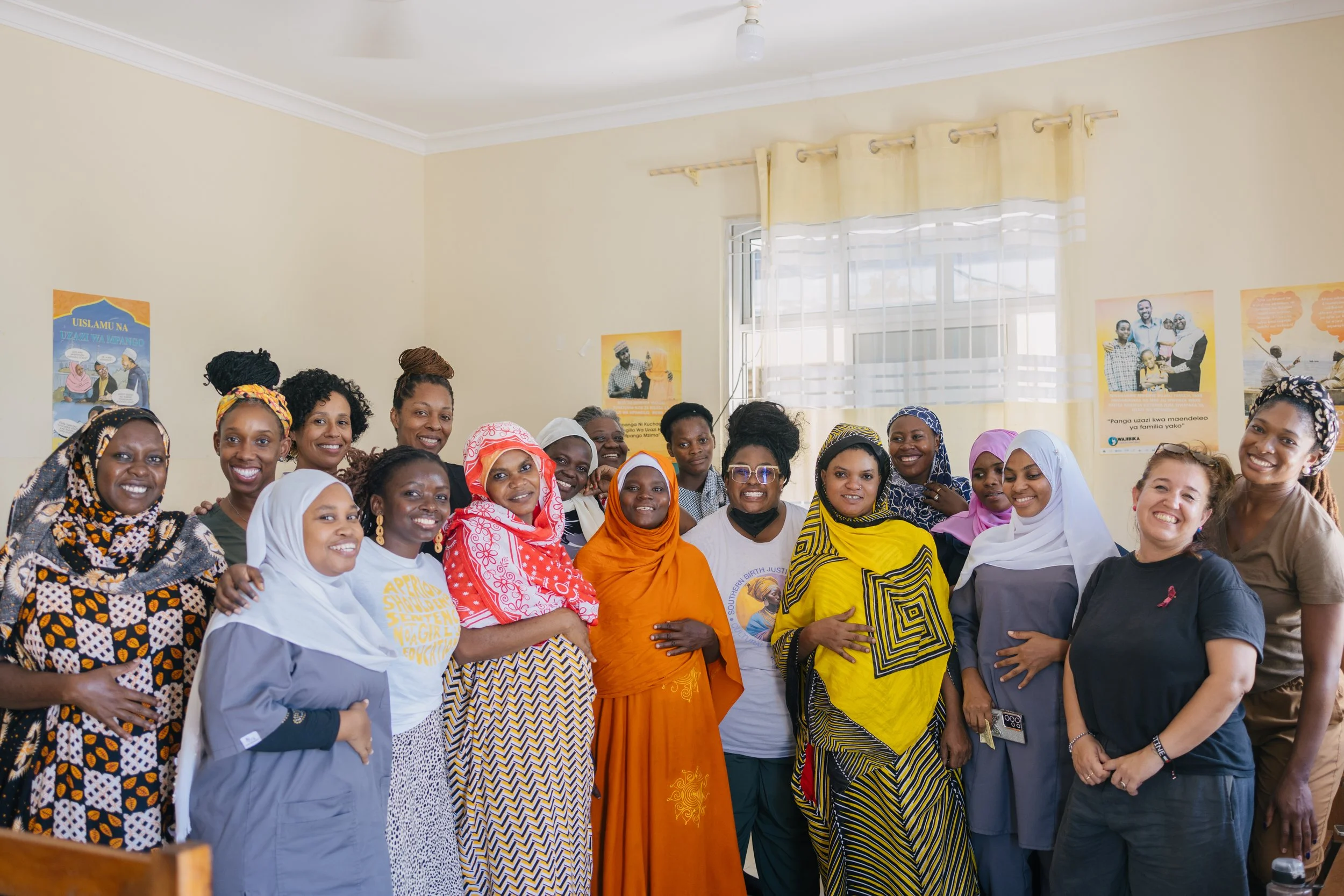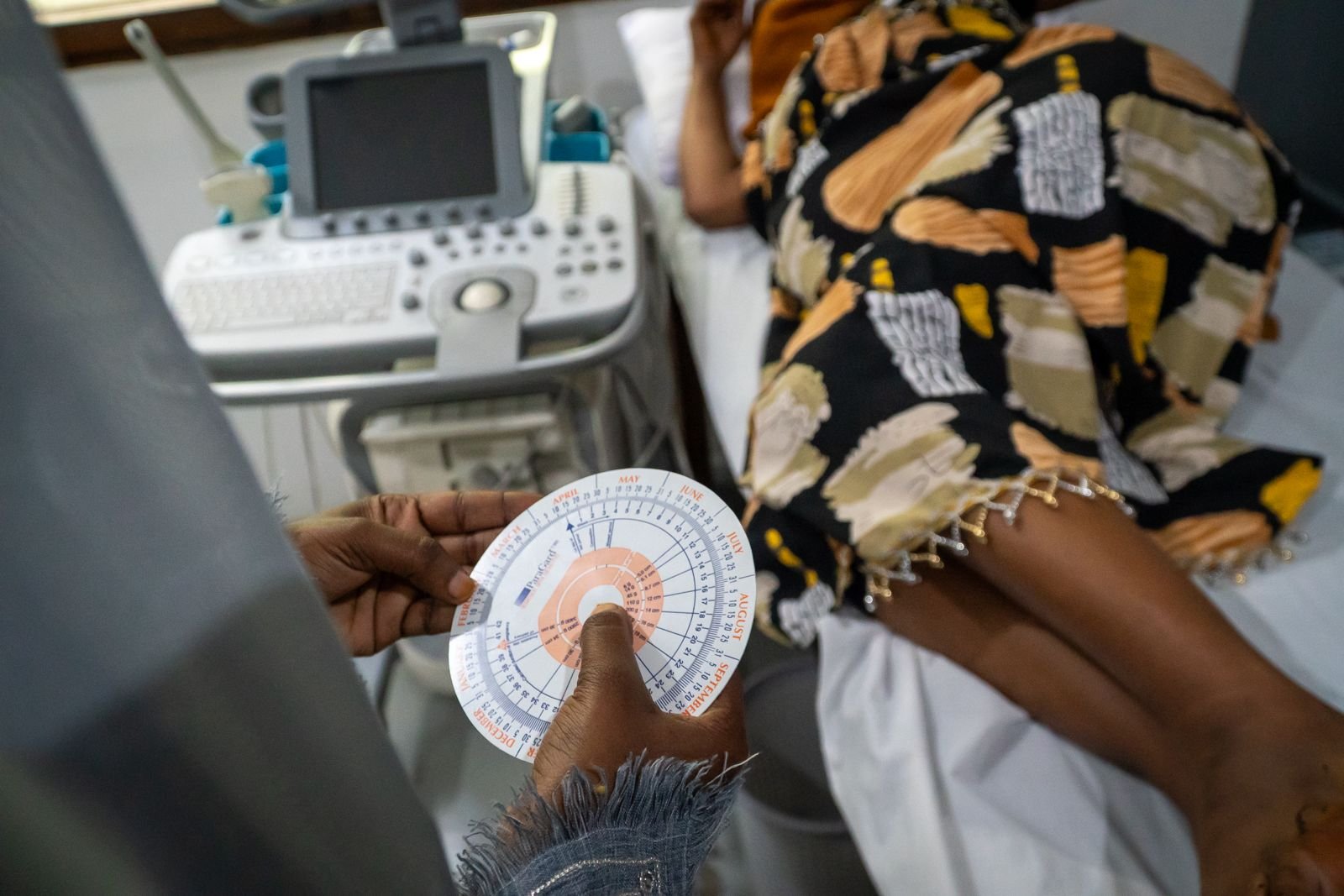Investing in Training: The Heart of Sustainable Impact
At WAJAMAMA, we believe that real, lasting change in maternal and newborn health outcomes begins with people–the facilitators, midwives, and community health champions who stand at the heart of care. But passion alone isn’t enough to transform an entire healthcare system. It must be supported through continuous learning, collaboration, and the opportunity to strengthen skills through practice and reflection.
That’s why training has always been more than a programmatic activity for us–it’s a philosophy and a commitment to ensuring that every Community Clinical Facilitator (CCF) at WAJAMAMA is equipped to deliver care that is compassionate, evidence-based, and transformative.
This October, we were proud to host a series of comprehensive trainings and learning exchanges that embodied this spirit of growth, collaboration, and bidirectional partnerships.
We began the month by welcoming the Southern Black Justice Network (SBJN) to Zanzibar. Their visit brought together a diverse blend of knowledge-sharing, technical skill-building, and community dialogue. SBJN led a series of impactful sessions with our CCFs, including a hands-on maternal health skills training and a workshop about dealing with loss that equipped our teams with practical and emotional tools to support mothers and families through grief and recovery.
WAJAMAMA facilitators sit and listen to SBJN midwives during the hands-on skills training.
Beyond the training, SBJN’s visit was an opportunity to strengthen partnerships and learn from the broader maternal health ecosystem in Zanzibar. Together with WAJAMAMA’s leadership, the team met with faculty from the State University of Zanzibar (SUZA) to discuss the development of the nurse-midwifery program, and also joined the WAJAMAMA team on site visits to observe our Group Care Model (GCM) in action–gaining firsthand insight into how group-based prenatal and postnatal care is transforming maternal health outcomes and fostering community among mothers.
Their visit culminated in a powerful community dialogue with Traditional Birth Attendants (TBAs) from southern communities in Zanzibar, where together we explored their successes, challenges, and ongoing needs as the primary maternal health providers. The discussion underscored the critical role TBAs continue to play in maternal care across Zanzibar, and globally, as well as the importance of ensuring they are supported, respected, and included in the continuum of care.
SBJN midwives, TBAs, and WAJAMAMA staff smile together after a productive and enlightening meeting.
Later in the month, our team led evidence-based trainings on measuring fundal height and screening for perinatal depression, in collaboration with faculty from Georgetown University’s School of Nursing and Georgetown DNP students. These trainings further strengthened our CCF’s ability to recognize both physical and emotional indicators of maternal well-being, ensuring that women receive holistic care that honors both body and mind. This training reinforced the relationship between Georgetown’s SON and WAJAMAMA, reinforcing our shared commitment to collaboration, clinical excellence, and advancing the quality of maternal healthcare in Zanzibar.
“At WAJAMAMA, our trainings are designed to make every trainee feel valued, supported, and accompanied. We focus on building confidence, strengthening skills, and inspiring a love for learning in a safe, judgment-free environment.” – Giulia Besana, Director of Programs and Learning at WAJAMAMA
Together, these trainings represent more than knowledge and skill-building. They represent a culture of continuous learning and collaboration that places bidirectional learning, empathy, and local expertise at the center of maternal health.
A WAJAMAMA CCF uses a gestational wheel to calculate a mother’s due date during the fundal height assessment training with WAJAMAMA and Georgetown.
As WAJAMAMA continues to work on scaling GCM across Zanzibar, these moments of learning ensure that our foundation remains strong: grounded in evidence, guided by compassion, and powered by people who are deeply committed to women’s health and dignity. Our long-term goal is to train a sustainable workforce of maternal health leaders, capable of delivering and expanding GCM far beyond our current reach. It is through trainings like these that we continue to build a cohort of master trainers who will make this goal possible.
When we invest in training, we are not just building capacity–we are nurturing a movement of care that lasts.



